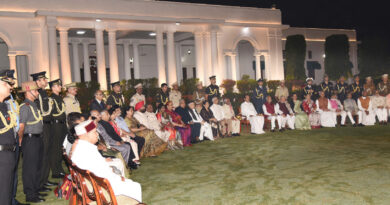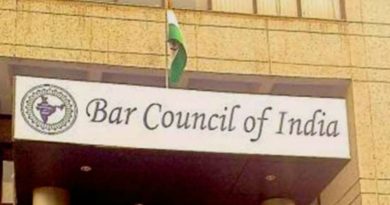Supreme Court Upholds Uttar Pradesh Madrasa Education Act, but Strikes Down Provisions on Higher Education Degrees
(Judicial Quest News Network)
New Delhi, November 5 – The Supreme Court of India today upheld the constitutional validity of the Uttar Pradesh Madrasa Education Act, 2004, while striking down provisions regulating higher education degrees under the Act. This ruling overturned the Allahabad High Court’s decision that had previously declared the law unconstitutional on grounds that it violated the principle of secularism.
In a landmark judgment, the Supreme Court clarified that a statute can only be struck down if it violates fundamental rights enshrined in Part III of the Constitution or if it contravenes the provisions governing legislative competence. The Court emphasized that challenges based on the “basic structure” doctrine, such as secularism, are not grounds for invalidating a statute unless it directly contradicts specific constitutional provisions.
Key Takeaways from the Supreme Court’s Judgment:
Educational Standards in Madrasas:
The Court affirmed that the Uttar Pradesh Madrasa Education Act helps maintain the standards of education in madrasas recognized by the state board, thereby ensuring that students acquire skills necessary to actively participate in society and earn a livelihood.
Secular Education in Madrasas:
The Court highlighted that while madrasas are allowed to impart religious education, they are also required to provide secular education to ensure their students can integrate into mainstream society. The state’s regulatory role is justified in ensuring that madrasas do not compromise their minority character while adhering to educational standards.
Consistency with the Right to Education:
The judgment emphasized that the Right to Education (RTE) Act and Article 21A must be interpreted alongside the rights of religious and linguistic minorities to establish and manage educational institutions of their choice. The state has the authority, with approval, to regulate madrasas in a way that ensures both secular education and the protection of minority rights under Article 30.
Regulatory Authority:
The Court ruled that the state legislature’s authority to regulate madrasa education is traceable to Entry 25 of List III (Concurrent List) of the Constitution, which deals with education. This competence includes overseeing the quality of education offered, even if it involves religious teachings, as long as the legislation does not infringe upon federal laws.
Conflict with UGC Act:
However, the Court struck down provisions of the Madrasa Education Act that sought to regulate higher education degrees such as Fazil and Kamil. These provisions were found to conflict with the University Grants Commission (UGC) Act, which governs higher education in India and falls under the Union List (Entry 66 of List I).
No Violation of Secularism:
The Court rejected the Allahabad High Court’s conclusion that the Act violated Article 21A (the right to education). The Supreme Court reaffirmed that religious minority institutions are not subject to the same requirements as mainstream schools under the RTE Act, as per the protection afforded by Article 30(1), which allows minorities to establish and manage their own educational institutions.
Implications for Madrasas:
The Court noted that while religious education is integral to madrasas, their primary objective is to impart education that enables students to contribute to society. The regulation of madrasa education does not exceed the legislative competence of the state and is consistent with constitutional provisions.
Religious Instruction in State-Aided Institutions:
Under Article 28(3) of the Constitution, the Court reiterated that religious instruction may be provided in state-recognized or state-aided institutions, but students cannot be compelled to participate in such religious education.
The Petitioners
The Supreme Court ruling came in response to petitions filed by various madrasa associations, including the Anjum Qadri Managers Association, Madaris Arabia Uttar Pradesh, All India Teachers Association Madaris Arabia New Delhi, Manager Association Arabi Madar Madrasa Nahin Bazar, and Teachers Association Madaris Arabia Kanpur, all of whom challenged the earlier judgment of the Allahabad High Court.
Conclusion
The Supreme Court’s decision strengthens the state’s role in ensuring educational standards in madrasas while protecting the rights of religious minorities to impart both religious and secular education. The ruling provides clarity on the boundaries between state regulation and the autonomy of religious institutions, especially in the context of higher education and religious instruction.
During a two-day hearing, the petitioners primarily argued that the Allahabad High Court had misconstrued the objectives of the Uttar Pradesh Madrasa Education Act, 2004. They contended that the High Court had wrongly characterized the Act as primarily concerned with imparting religious education, rather than acknowledging its true purpose: to establish a regulatory framework for the education of Muslim children in the state.
In contrast, the respondents, including the National Commission for the Protection of Child Rights (NCPCR) and other opposing parties, emphasized that madrasa education undermines the promise of quality education guaranteed under Article 21A of the Indian Constitution. They argued that while individuals are free to pursue religious education, it cannot be considered a substitute for mainstream education that is essential for the holistic development of children.
Background: Supreme Court’s Interim Order
In April, the Supreme Court had stayed the High Court’s judgment, observing that the High Court had misinterpreted the essence of the Act. The Court had noted that the High Court failed to properly understand the regulatory nature of the Madrasa Act and its alignment with the state’s obligations under the Constitution.
High Court’s Previous Ruling
The Allahabad High Court had earlier declared the Uttar Pradesh Madrasa Education Act as ultra vires (beyond the powers) of the state, asserting that it violated constitutional provisions. The division bench, comprising Justice Vivek Chaudhary and Justice Subhash Vidyarthi, had directed the Uttar Pradesh government to devise an alternative framework to integrate madrasa students into the formal education system. This ruling was based on the belief that the madrasa education system failed to meet the standards of mainstream education.
The High Court had issued the order in response to a writ petition filed by Singh Rathore, challenging the validity of the UP Madrasa Board and the management of madrasas under the Minority Welfare Department. The petition also addressed broader constitutional and legal issues concerning the governance of madrasas in Uttar Pradesh.
Arguments Presented During the Hearing
The petitioners’ legal team, which included prominent advocates such as Dr. A.M. Singhvi, Mukul Rohatgi, P.S. Patwari, Chidambaram, Pinaka Guruswami, Salman Khurshid, and M.R. Shamshad, argued that the Uttar Pradesh Madrasa Education Act is a legitimate exercise of the state’s power to regulate and standardize educational practices for Muslim students. They stressed that the Act’s primary aim was not to impose religious instruction, but rather to establish a comprehensive framework that ensures educational quality and provides students with a pathway to integrate into the broader educational system.
On the other hand, the opposition, represented by Senior Advocate Swarupama Chaturvedi for the NCPCR and Senior Advocate Madhavi Deewana, argued that madrasa education violates the constitutional guarantee of quality education under Article 21A. They contended that the Act, as it stands, fails to align with the secular, universal education goals mandated by the Constitution, and thus cannot be considered a substitute for mainstream education.
Key Legal Representation
The legal teams in the case included some of the country’s most respected legal minds. The petitioners were represented by:
- Dr. A.M. Singhvi, Senior Advocate
- Mukul Rohatgi, Senior Advocate
- P.S. Patwari, Senior Advocate
- Chidambaram, Senior Advocate
- Pinaka Guruswami, Senior Advocate
- Salman Khurshid, Senior Advocate
- M.R. Shamshad, Senior Advocate
- Rohit Amit, Advocate
- A.R. Sankalp Narayan, Advocate
- M.P. Avsar, Advocate
- H.P. Sahi, Advocate
- Yash Johari, Advocate
- Utkarsh Pratap, Advocate
Representing the state of Uttar Pradesh was Additional Solicitor General K.M. Natraj, while the NCPCR was represented by Senior Advocate Swarupama Chaturvedi. Senior Advocate Madhavi Deewana appeared on behalf of the intervenors opposing the Act.
Concluding Observations
The Supreme Court’s forthcoming decision on the Uttar Pradesh Madrasa Education Act will have significant implications for the regulation of minority educational institutions, the protection of children’s rights, and the balance between religious freedom and access to mainstream education. The legal arguments presented by both sides reflect the complex intersection of constitutional rights, minority education, and the state’s role in regulating educational standards.




